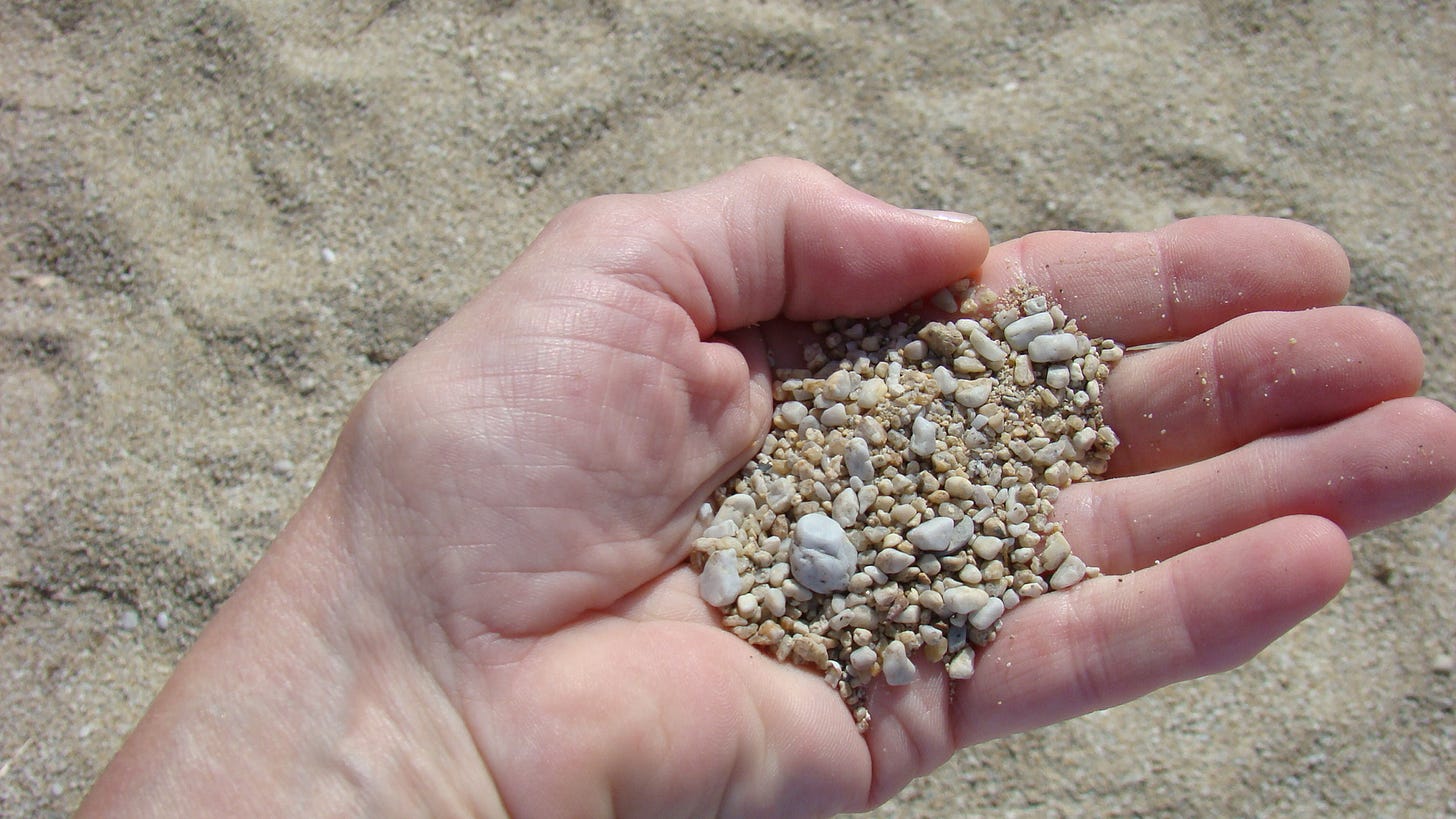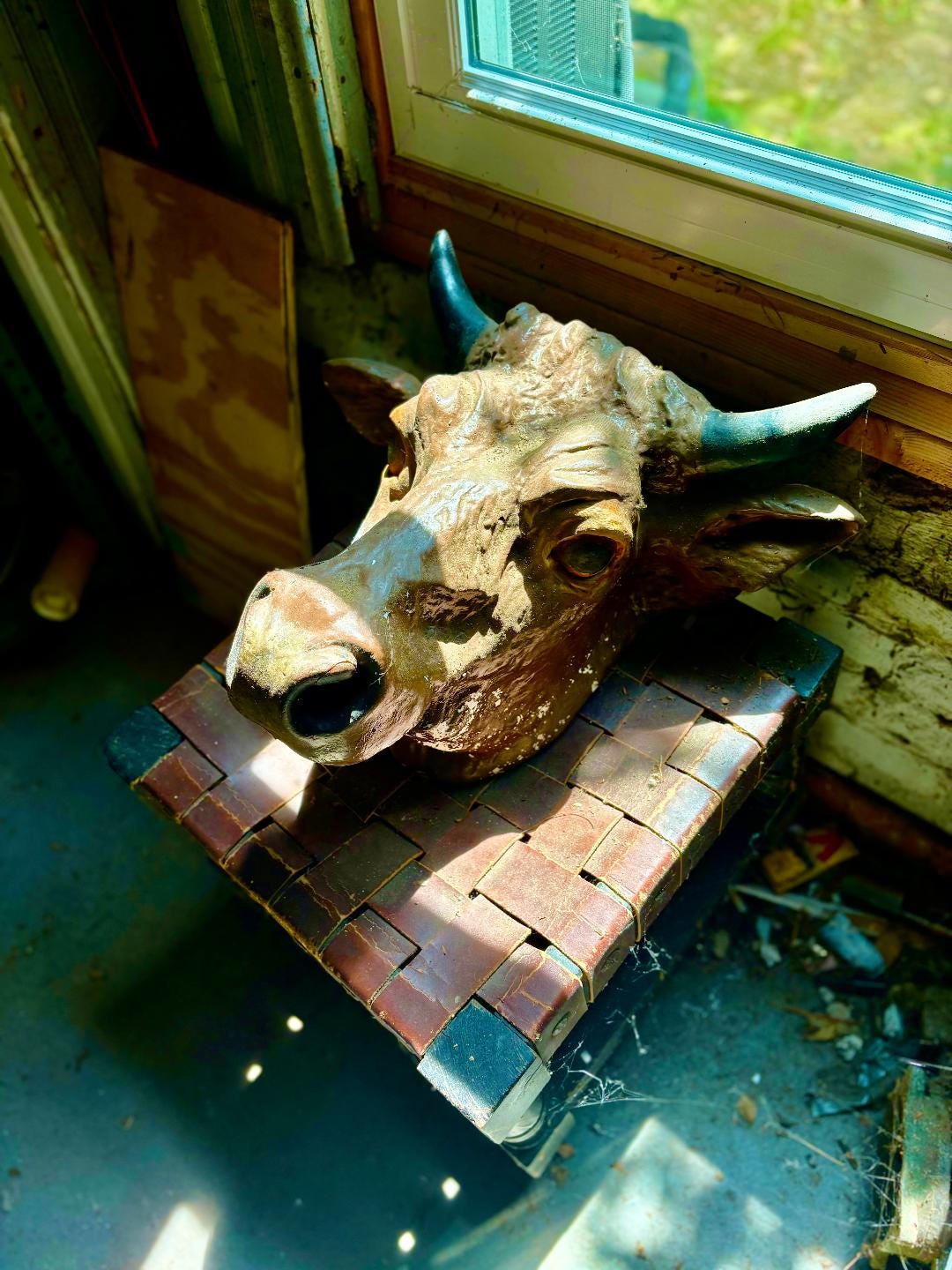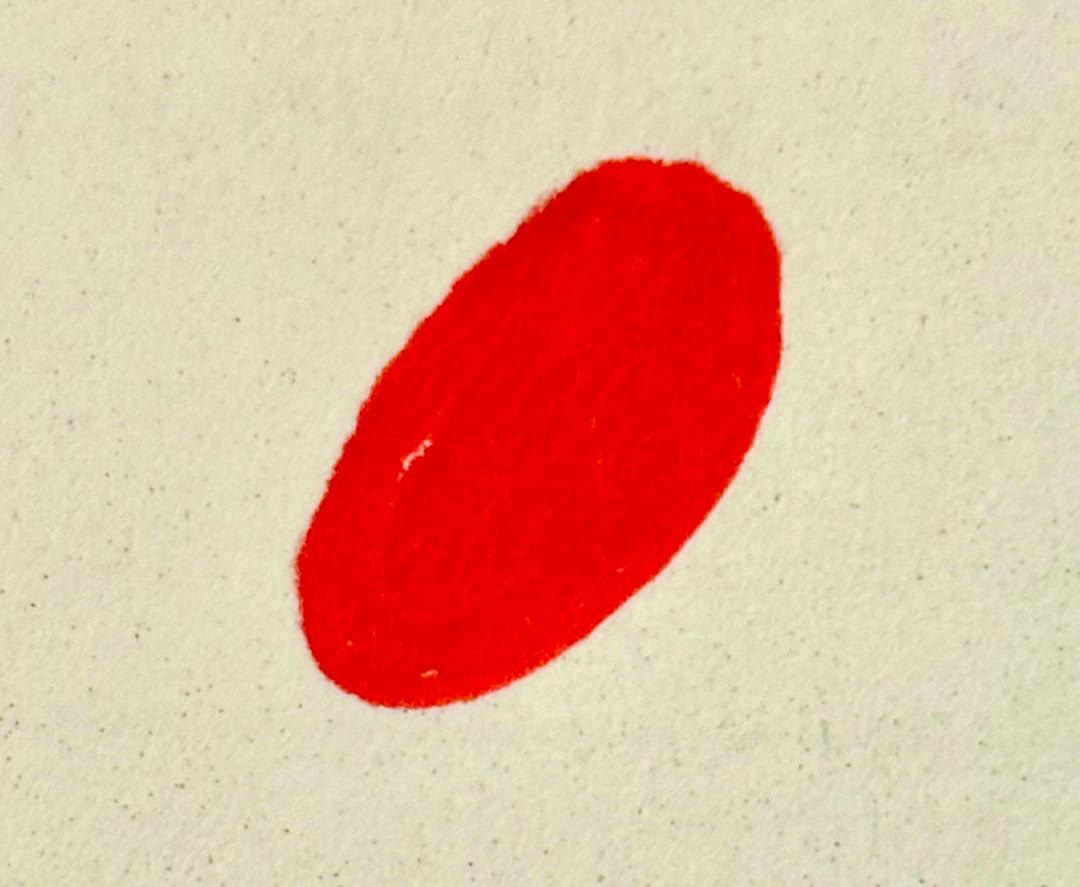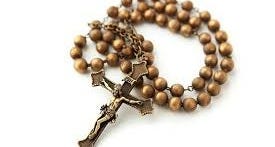It Became More than That
From the time she was 15 until her passing in 2018, writing was an ever-present influencer in Leah Napolin’s life. Writing provided her with the platform to observe and comment on the events and people that were consequential in her world, - from the minute to the universal, from YENTL to THE DOGS OF PRYPIAT. Future issues of QUIDDITY will provide you with the opportunity to become familiar with some of her insights. **********
THE PACK RAT CHRONICLES
by LEAH NAPOLIN
PART 2
(Part 1 ended with Leah concluding …frugality came to be enshrined in our household above almost every other virtue.)
Some years later I wrote a children's story based on Noah and the Flood. Set in the not-too-distant future, it told of a civilization about to self-destruct and a junkman who lived by his wits, utilizing the throw-aways of this wasteful world to save his little clan, his happy band of scavengers. The theme of the story was environmentally correct, but one day it occurred to me that it was also an innocent idealization of certain principles which had been the pabulum of my youth. And, it wasn't until much later that I could recognize the damage done by these same principles, grown warped as my father's shelves. Before I could admit to the sense of inferiority I felt when having to wear a homemade gown to my high school prom. Before noting the daily struggle between stinginess and generosity which made even the simplest choice a test of moral fiber. Which is worst: being poor, feeling poor, or the stigma of poverty in an affluent society?
Truth, often hard to find, can be harder yet to tell: there was always enough money for The Store, never enough for us. The Store came to be the fifth member of our family—the greediest, the most insatiable one. It was The Store, and ultimately the blurring of the boundaries of my father's identity with that of The Store, that gave rise to the discord which colored my parent's marriage. Fights that went on for days—struggles over money for new business ventures versus money for our education. He controlled the purse-strings, keeping us economically marginal. She, in turn, like generations of women before her who felt trapped and unempowered, struck back at him with the only weapon at her disposal. She withheld and parceled out the love and affection he needed.
It's with a sense of bitterness that I recall those rare moments when he would peel a bill off the top of a roll of bills kept in his wallet and magnanimously hand it to my mother, saying, "Here, buy yourself a pair of new shoes."
Or the game he played with my sister and me, a sort of Price is Right, long before the television game show version. Scooping a fistful of loose change out of his pants pocket he would challenge us to guess how much money he was holding. If we guessed it, we could have it. It didn't matter if you were way off by a dollar or more, or if you were only a penny short. No one ever guessed right, except once. Yes, once I hit the jackpot. Bingo. He turned a little pale but pulled himself together, laughed, congratulated me.
"Well?" I said, holding out my hand for the victory payoff which, at that moment, was sweeter than dollars alone could ever be. I had bested him and would never again play the game. It was barely concealed outrage I felt against something I didn't even understand—the grudging way of giving, the bottom line ungivingness.
What kind of man was this? An orphan, unschooled past the eighth grade because he had to go to work. Survivor of a dysfunctional family whose deprivations, only hinted at in the sketchy family histories, might have provided a clue. A man who acquired books along with everything else—some of them prized specimens of the bookmaker's art—but couldn't have cared less about what was in them. A man who never looked at a newspaper unless it was wrapped around something. This was the man my mother introduced to the "finer things in life." But had she? Who changed whom?
"Make the best of it," was our motto and, so doing, we arranged our lives around the needs of The Store. But, because we failed to grasp the true configuration of my father's behavior, and most likely would have lacked the will to confront it even if we had grasped it, we ended up subsidizing it. Accomplices, not victims. All his failures in business, his financial ups and downs, we attributed to bad luck or poor judgment. At no time did it dawn on us that his business supported his habit, not the other way around.
A baby book I found not long ago tucked in the back of a drawer tells the story. There, in my mother's handwriting, on the page reserved for special events, my first birthday party in Philadelphia is recorded thusly: "Grandma gives baby present of fifteen dollars. Uncle Abe and Aunt Liza present of ten dollars..." and so on, down through a roll call of doting aunts and uncles, to the final notation: "Daddy sends telegram."
From my first birthday party, to the vacations that were never taken as a family, to my college graduation celebration which he cut short by running back to The Store because business couldn't wait, to the opening night of my first play when he had to be forcefully persuaded to put on his good suit and go, I never quite got over the pain of each fresh disappointment, each broken promise in a childhood littered with broken promises. We never stopped trying to figure him out, but whatever the reason, whatever the cause, the overwhelming evidence seems to suggest that the absentee landlord of our lives had wrestled with his compulsion for a long, long time.
In the absence of a diagnosis, however, we could still cite symptoms. Paranoia, for example. For as long as anyone can remember, my father believed people were stealing from him. The missing item would invariably be found in some place where he himself had stashed it, but not until everyone in the family had suffered through humiliating scenes of accusation and denial.
Another point was The Store itself. He nailed the windows shut, put chicken wire over the panes and hammered boards over the chicken wire. And, as if that wasn't daunting enough, he rigged homemade alarms which served no purpose other than to go off when they weren't supposed to. There was also a watchdog, and a .22 caliber handgun kept next to the cash register. The gun was unloaded and intended merely for show. The bullets were kept at home in the top drawer of the sideboard, next to the hurricane candles and the good teaspoons. I've often wondered what would have happened if an intruder had broken into our house. What would we have done—thrown the bullets at him?
(to be continued)
###
MEANDERINGS: “The Fleury Way”
Sometimes the convergence of events is whispered. Sometimes it’s shouted. Sometimes it explodes. But, you can usually count on its being of consequence —noted, erased, or enshrined. So, it was with the convergence of the first released photos taken by the Rubin telescopic camera, an attic clean-up, and a recent family dinner.
On the morning of the planned attic cleanup, I was enthralled with the release of the first images taken by the Vera Rubin Observatory optical telescope, with 3,200 megapixels, the largest digital camera in the world. The released video is comprised of 1,100 captured images. At one point, the video zooms out to show “about 10 million galaxies spotted by the camera’s wide view — roughly 0.05% of the 20 billion galaxies Rubin will observe over 10 years.” I kept repeating the video, my mind buzzing with trying to grasp what I was both seeing and reading. No sounds, just the silence of the buzz of billions of my brain cells bumping into one another.
This Carl Sagan “pale blue dot” meditation was interrupted by the guitar strumming of my iphone.
“Hi, Babka, we’re on our way over. We’ll be there in about half an hour. Is that okay?”
“Sure.” Still in a state of wonder, I jumped from the world of physics, theology, and philosophy and landed in the dust of cardboard boxes, stacked oil paintings, and long-forgotten medical devices.
We cleaned, sorted, and discarded while the billions of galaxies and universes continued posing for the camera.
“Let’s have dinner tonight at Tocolo’s with the rest of the family. Whatcha think, Babka? Up for Mexican?”
“Sounds like a plan. Guacamole and shrimp tacos sounds good to me right now. How about six o’clock? I’ll meet you there.”
The shrimp tacos and guacamole were tasty and added to my enjoyment of the light conversation that caught each of us up with our current interests. But, the most fun and engagement centered around memories of “grammie” who has been missing from our family dinners for over seven years. Daughters and granddaughters smiled and giggled as they related stories of grammie being their childhood mentor, councilor, entertainment director, comedian, confessor, and soft pillow. Of course, I added my own sit-com worthy tales.
At this point, the posing galaxies and multiple universes began to converge within my personal universe, reviving a memory that has lain dormant among the billions of aging memories.
I truly look forward to these gatherings because this kind of event was not a part of my growing up. Mom, dad, and I, their only child, with no pets shared a table – rarely with guests and even more rarely outside of our own kitchen. This setup prompted mostly silence or the weather report. We, obviously, were not the model for that Norman Rockwell fantasy of familial joy and sharing.
For me, half a block away, that model was housed in a beige, three-story clapboard house on the corner of Fleury Way and Collier Street. On any given day, I would walk or pedal to the home of MY CHOSEN family. The O’Donalds were a family of eight kids, mom and dad, plus two dogs and one cat. I never needed an invitation. I was just assumed to be part of what was happening inside or outside. There, it was never quiet: my seventh grade classmate Cathy and I ignoring the dogs who were begging as we made sandwiches for lunch; Butch and Eddie fixing their bikes; Peggy practicing on the piano; oldest sister, Virginia, trying to find some privacy; the littlest ones playing in the small backyard; Mrs. O’Donald in the dining room folding the laundry she just brought up from the basement where Mr. “Red” O’Donald made his living creating billboard signs. I loved the smell of the oil paints drying on brushes, and I was intrigued with his signature which was a slanted, solid red dot that he painted on the bottom of his signs. Here, I felt part of an ever unfolding, involved family life that was loud, joyful, and welcoming.
Once a day, all activities in the O’Donald home came to a halt, and everyone, including me, gathered in the living room. It was seven o’clock and time to kneel and recite the rosary with the priest on the radio. “Hail Mary, full of grace…”
(to be continued)
###
HYPATIA’S BOOKROOM
A New Kind of Library
“I have always imagined that Paradise will be a kind of a Library.” –Jorge Luis Borges
QUIDDITY, is building its own library of books that are of importance to us--intellectually, emotionally, spiritually, ethically, etc.-- books that we would definitely rescue from a trash pile. We’re calling it Hypatia's Bookroom after the chief librarian of the ancient library of Alexandria. Tell us the title, author, category, and why this book is important to you. Questions you might consider include: Would you read this book again? Would you gift it to someone (who, why)? What note would you write on the cover page?
On the shelves so far: The rescued books selected by readers has grown and takes up too much space to list them all here. You can peruse the entire listing by going to the blog section of my website at blmurphy.com.
"There are so very many books, and we have forgotten almost all of them." (Lit.Hub) May we save all we can.
Kafka’s ideal of what a book should be: “An ax for the frozen sea within us.” (Sigrid Nuez interview in “By the Book,” NYT Book Review, 12/10/23)
**********
Maryland School Librarian Hosts Summer Book Swap
Jennifer Hartman, a school librarian at Villa Cresta Elementary in Parkville, Md., has organized a Summer Book Swap to keep students engaged in reading during the break. With donations from the Maryland Book Bank and families, each of the school's 600 students can take home five free books, helping to combat the "summer reading skills slide.” With over 5,000 gently used books available for kids to browse and take home, students are welcome to keep the books or bring them back in the fall to swap again.
____________________
( Ray, M.) I hesitated to send my recommendation for Maus by Art Spiegelman (1996) because I initially thought many people had already championed adding it to Hypathia’s Bookroom. I also thought that it would be a kind of cliché. But, given today’s headlines that report on Middle East warfare, immigration issues, and antisemitism, there’s no way to ignore the fact that Maus remains relevant today and for decades to come. Simultaneously a memoir and an autobiography, Spiegelman’s graphic novel covers two stories: his father’s survival of the horrors of the holocaust and his own coming to terms with those horrors. A single panel showing Spiegelman's young parents, hiding from the Nazis and starving, chewing on a piece of wood because "it feels like real food" haunts me as I read or view news stories about current world affairs. Profound and a must save. &











